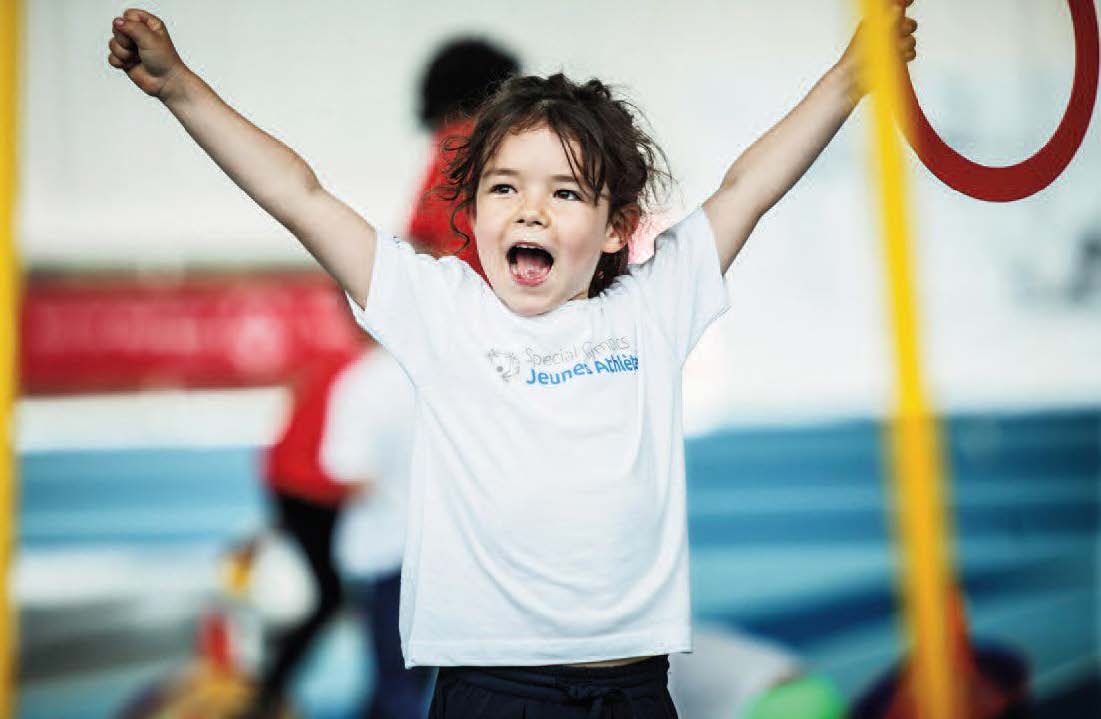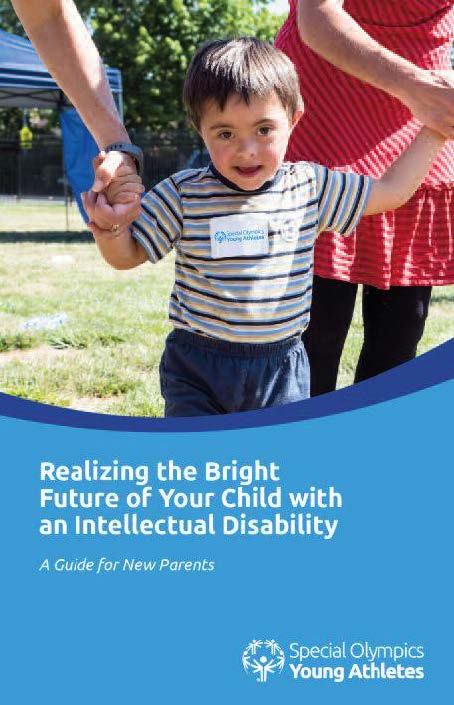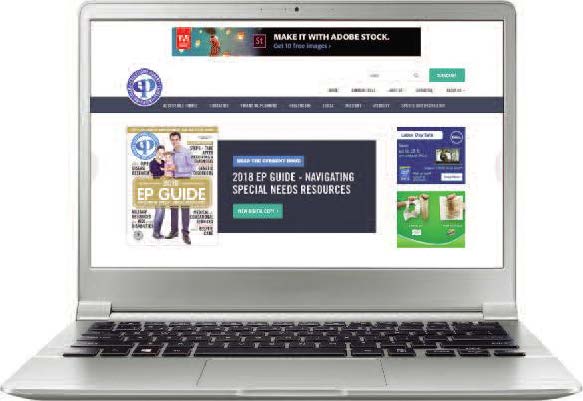
Special Olympics has recognized the need as an organization to take a more positive approach to empower parents and caregivers of children with ID because of their experience with Special Olympics athletes who continue to inspire and amaze with all that they are able to do.
AT THE TIME OF A DIAGNOSIS OF INTELLECTUAL DISABILITIES
Parents recall with great accuracy the exact words physicians use when giving the diagnosis of an intellectual disability (ID) up to 20 years later. Distressed parents report feeling stressed by lack of support from their physicians. Doctors and healthcare providers are often the first resource for families on how to support their child.. In the case of children with ID, many healthcare providers have limited knowledge to support the needs of parents with newly diagnosed children with ID and even fewer resources to do so.
T he Special Olympics Healthy Athletes program has trained and worked with over 135,000 clinical volunteers around the world in many areas of health. As an organization Special Olympics has created spaces for people with ID to receive vital health screenings and has trained health care providers making them more aware of some of the complex health issues that people with ID face, but we realized we did not have much to support families who may be faced with an early diagnosis.
Special Olympics is uniquely positioned to create awareness for health care providers not only at the point when a child is ready to enter into the Special Olympics Young Athletes program, a program for children ages 2 to 7 years old, but by educating providers on how to support families at the time of diagnosis. With funding from Mattel, Inc., not only did we find it important to focus on the provider delivering the diagnosis but we also sought to see how to support new parents of children diagnosed with ID.
Special Olympics Health began the process of addressing these needs by working with Developmental Pediatrician Dr. Alicia Bazzano to design new resources for both new parents and health care providers. For parents, we found it important to improve their understanding of what it means to have a child with ID and assist with developing positive attitudes around the time of diagnosis. For health care providers, we wanted to increase physician's knowledge, skills and self-efficacy in delivering the diagnosis of intellectual disability and supporting the parents around the time of diagnosis.
We first developed a community-academic partnership between Special Olympics and UCLA Mattel Children's Hospital. In collaboration, we developed and utilized three educational strategies: (1) A recorded "Grand Rounds" educational session to provide information on intellectual disability, diagnosis, prognosis, and skills on delivering the news and supporting families through the diagnostic process. Typically, Grand Rounds provides presentations of scientific literature rather than skill-building opportunities for health care providers and medical residents so this approach was slightly different.
(2) We also designed a visual poster with key points for medical diagnosis as well as tips to encourage the use of soft skills, which we placed in break rooms and residency offices. (3) Finally, a Resource Guide was developed for parents and caregivers of a newly diagnosed child to introduce them to the ID community and provide them with key resources and information.
Health care provider feedback on the Grand Rounds was high, 85% agreed that the intervention increased their knowledge and that the intervention could improve practices, including better preparation, as well as increased skills to provide family support and knowledge of additional resources. In addition to those in attendance at the Grand Rounds, we also received additional feedback from health care providers and residents in offices who evaluated the poster. They all described increased knowledge, cultural sensitivity to disabilities, and 62% showed increased comfort with guidelines.

VITAL SIGNS: (Above) The Parents Guide received positive feedback from parents engaged with Special Olympics Southern California's Young Athletes program; (Right) The newly developed Health Care Provider Informational Poster provides information at a glance for physicians to use during a diagnosis of ID.
The parent's guide Realizing the Bright Future of your Child with an Intellectual Disability: A New Parents Guide received positive feedback from parents engaged with Special Olympics Southern California's Young Athletes program and other parents who received the resource at area hospitals and resource centers. The guide provided a personal letter from both a Special Olympics athlete as well as a parent, which provided more optimism and assurance. The guide also was able to dispel myths about raising a child with ID and explained facts other parent support resources and materials seemed to lack. We are now seeing the parents' guide gain additional traction and we are exploring its use in the hospital setting and in educational institutions.
The results have shown that through these resources, we have the ability to increase physician's knowledge and their self-reported ability to provide a more positive approach to delivering a diagnosis of ID, as well as provide support to families who are often haunted by poor experiences with health care providers during this critical time. We are looking at how we can take this same model to create other education and awareness opportunities in other areas for health care providers. We also have recognized the need as an organization to take a more positive approach to empower parents and caregivers of children with ID because of our experience with our Special Olympics athletes who continue to inspire and amaze us with all that they are able to do. •
ABOUT THE AUTHOR: Charita R. Boseman, MS is the Manager of Special Smiles, FUNfitness and 1-Year Healthy Communities at Special Olympics International, where she served as the manager on this Mattel Health pilot project. She has a Masters in Health Promotion and Sports Sciences from the University of Memphis and has been working to improve the health status of vulnerable people.
EP's Innovative New Digital Strategy

Exceptional Parent Magazine is proud to announce the launch of ep-magazine.com – our all new website which coincides with our expanding role as a leader in the field of special needs publishing and communications.
ep-magazine.com now features a bold new design and intuitive site-wide navigation system with improved menu functionality that directs you to the information most relevant to you. It is also fully responsive with mobile devices, making it easy to navigate on a wide range of web browsers and portable devices.
We've introduced a range of new content to the website, including In This Issue that highlights selected content from our latest issue, and From Our Contributors, which features the most recent offerings from regulars such as Genetic Alliance and the AADMD.
Our eNewsletter is the latest innovation in our digital strategy, enabling you to sign up for updates right on the homepage, and access the articles that matter to you each and every week. We also plan to continue adding more video content and product information to provide you with all of the resources you need to care and plan for your loved one with special needs.
We're really proud of the new website and feel it will create the experience you're looking for when you pay us a visit. Check it out here: ep-magazine.com